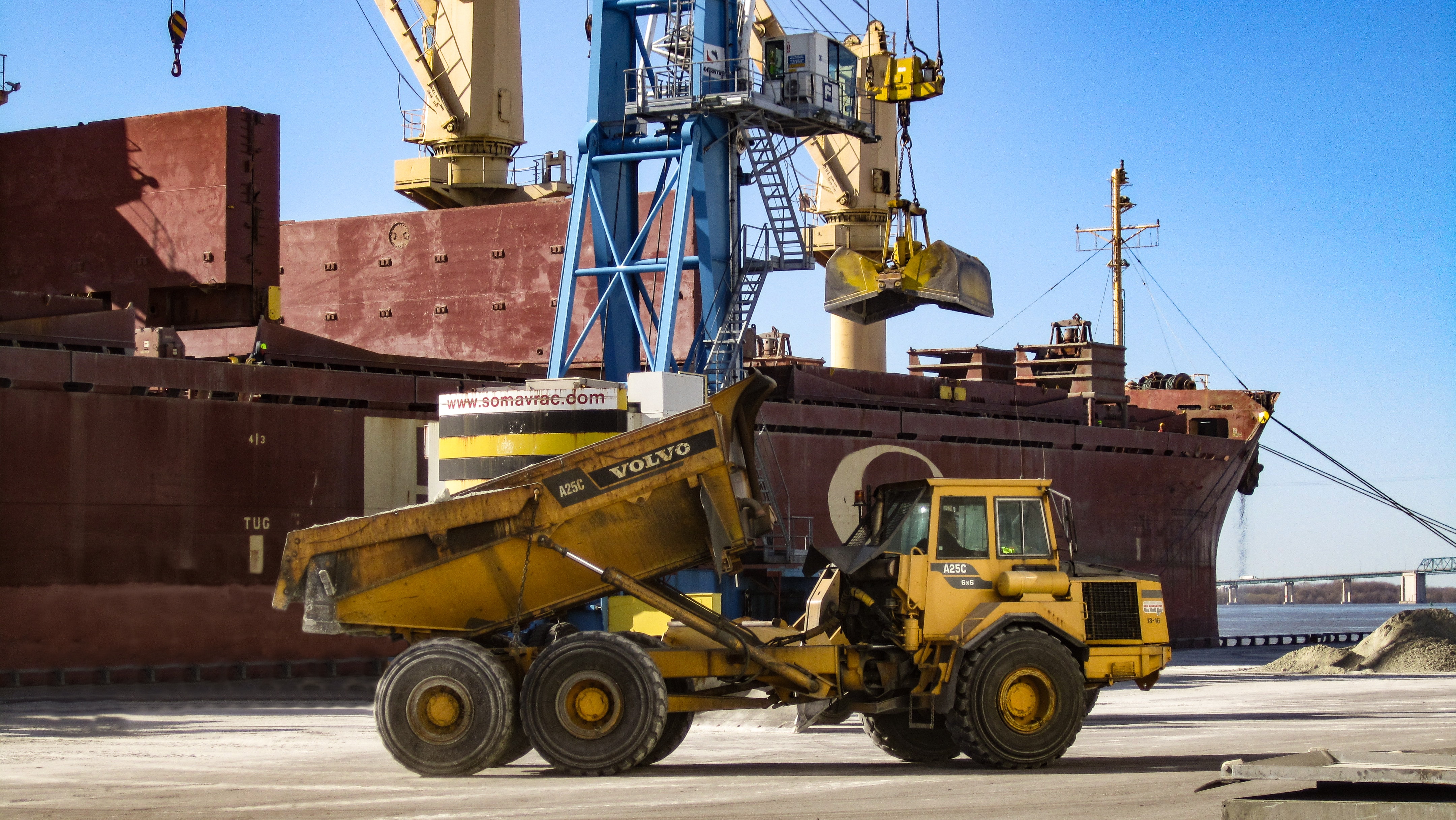
24 May 2018

24 May 2018
Tons of rocks and minerals are transported and unloaded at different various ports each year. This essential step in the logistics chain must be supported by a logistics service provider that cares about the environment and provides safe and efficient operational management of cargo.
Since mining concentrate shipping operations require a variety of operational skills, you should seek to do business with a long-term partner that you can rely on rather than a basic supplier. Here are a few tips to help you find a real “gem” ;).
Make sure the supplier [future partner] who you want to handle your mining concentrate is strategically positioned. To do so, ask yourself: which corridors best match the desired transport logistics? Depending on the quantities and characteristics of the cargo, railways, roads or waterways will help best meet your needs. Briefly, here are some facility features you should consider with your supplier: technical installation specifications [water depths, tide, access and port infrastructures], maritime and road traffic, demurrage/wharfage fees, and other related user fees. The supplier can show you a schematic representation (e.g. flowchart) of the various intermodal or combined transport solutions available to you and the associated costs.
Cargo characteristics [dry bulk, moisture content, stickiness or powder] must be taken into account during handling. The supplier must therefore be familiar with the compatibility between types of cargo [if applicable] and have diverse handling equipment adapted to the characteristics of products. Facilities should include a variety of items such as railcar and truck loading and unloading stations or ship loading and unloading facilities that integrate effectively for smart cargo handling sequencing. An experienced supplier knows how to limit losses, improve safety and expedite delivery through its equipment and working methods, even in adverse weather conditions. The knowledge of your supplier at this level will be reflected in their portfolio of achievements. Do not hesitate to ask for this kind of information.
Mine efforts in health, safety and environment must be consistent with those of their logistics provider. Here are some statistics to go over with them:
– Existence of a health, safety and environment department within the company
– Health and safety program with regular internal audits
– Employee training: of what kind? Is it up to date;?
– Incident rate over the last few years
– Severity and frequency rates
– Crisis management plan in place
In terms of handling, efficiency equals savings. This is not set in stone ;), but the years of experience of a logistics handler can give you an idea of its efficiency and ability to minimize product loss. Feel free to validate how long the supplier has handled your type of cargo and how often they do so in a year. In addition, for this type of product, ask about the loading and unloading rates in tons per hour and operational parameters (ship unloading times, etc.). Simply make sure that the price quoted by your provider meets your expectations.
The health and safety of the public and employees, as well as the protection of the environment, must always be considered first when handling your cargo. To ensure that your supplier shares your concerns about these aspects, check that :
– The supplier has never caused major damage to the environment nor has bad press about it.
– Cleanliness is a business practice.
– Storage sites are near loading and unloading areas.
– The supplier has equipment and site maintenance procedures (mechanical broom sweepers).
– Conveyors for the transfer of goods are covered and well-laid out or transfers are made inside the warehouses.
Remember that each supplier has its specialty and ability to meet your specific needs, particularly concerning bulk product handling. Therefore, validate the openness the supplier demonstrates regarding your quality control or inventory requests, for example. Also consider the offer of related products such as dust suppressants, pH control, nitrates, liquefied natural gas, etc.
That is a quick overview of things to look for when seeking out a good business partner. Supplier facilities and skills are important, but their attitude, which includes listening, responsiveness and dedication, is just as important!